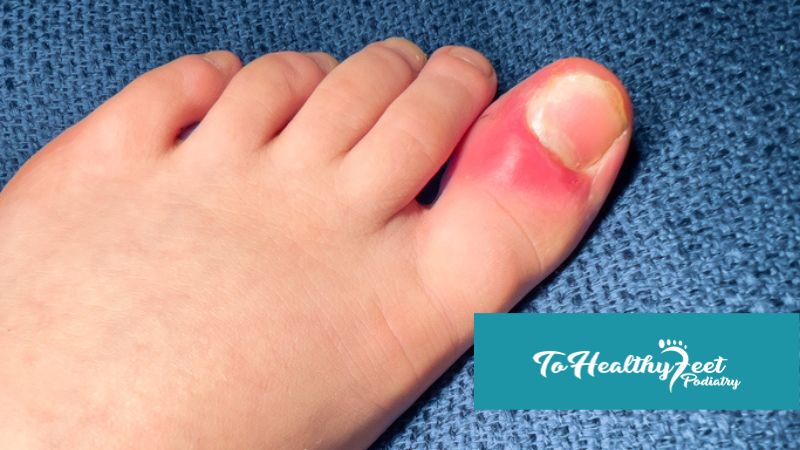Ingrown toenails are more than just a minor discomfort; they can be a source of significant pain and frustration, impacting daily activities and even leading to infections. Many people have experienced the nagging pain of an ingrown toenail at some point, and if you have, you know it's something you'd rather avoid in the future. In this friendly guide, we'll explore the best practices to prevent ingrown toenails and keep your feet healthy and happy.
Proper Footwear
- Choosing the Right Shoes: Selecting shoes that fit well is not only crucial for comfort but also essential for preventing ingrown toenails. Shoes that are too tight, especially around the toes, can press the nails into the skin, leading to ingrown toenails. Opt for footwear that offers enough space for your toes to move freely without feeling constricted.
- Socks Matter Too: Believe it or not, even your choice of socks can contribute to the health of your toenails. Wearing socks that fit too tightly can have the same effect as wearing tight shoes. Choose socks that fit well and provide enough room for your toes.
Foot Hygiene and Nail Care
- Regular Foot Care Routine: Establishing a routine to care for your feet can prevent many common foot problems, including ingrown toenails. This includes washing your feet daily, keeping them dry, and moisturizing them if they tend to become dry. These simple steps can make a significant difference in the overall health of your feet.
- Proper Nail Trimming Technique: How you cut your toenails plays a vital role in preventing ingrown toenails. Cut your toenails straight across rather than rounding them off at the corners. This helps prevent the nail from growing into the skin. Using appropriate nail clippers designed for the toes can also make this task easier.
Seek Professional Help When Needed
If you suspect that you have an ingrown toenail that's becoming infected or if you have chronic problems with ingrown toenails, don't hesitate to seek professional help from a podiatrist or healthcare provider. Sometimes, home care isn't enough, and medical intervention becomes necessary.
Other Considerations
If you have underlying health conditions such as diabetes or circulatory issues, you may be at higher risk for foot problems, including ingrown toenails. In such cases, more frequent foot examinations and professional foot care may be advisable.
Healthy feet are essential for an active and fulfilling life. Even something as seemingly small as an ingrown toenail can hinder your daily activities and lead to more serious problems if not addressed.
Preventing ingrown toenails doesn't have to be complicated. Simple steps like choosing the right shoes and socks, maintaining good foot hygiene, and employing proper nail-trimming techniques can make all the difference.
If you have ever suffered from an ingrown toenail, you know how painful and bothersome it can be. Thankfully, these best practices are easy to incorporate into your daily routine, allowing you to step forward with confidence and comfort.
Let's celebrate our feet – they carry us everywhere we go, after all! By embracing these preventive measures, you're not just avoiding discomfort but also showing love and care for a part of your body that often goes unnoticed. Here's to happy and healthy feet that are ready to take you on all of life's adventures!
Written on behalf of To Healthy Feet Podiatry.




